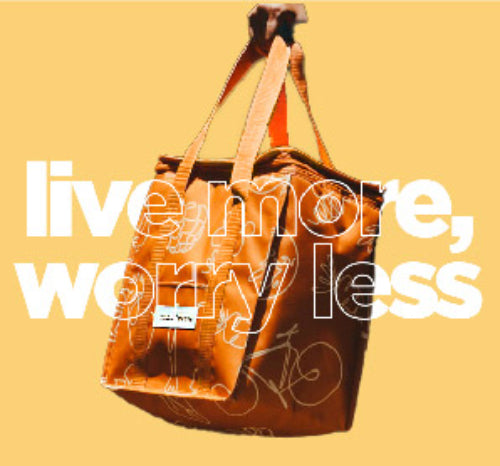more than food
6 Things Worth Buying to Get a Better Night's Sleep
It’s been estimated that the sleep industry is worth about $70 billion dollars — staggering proof that more of us are turning to gadgets and other aids to catch a better night’s sleep. So how can you know what’s actually going to help? We spoke with D.C.-based sleep consultant Christine Stevens to help demystify these products, and shed some light on what’s worth the investment.
(1) Blackout curtains for bright bedrooms
When it comes to great sleep, it’s imperative to optimize the environment in your bedroom. You want it to be cool, dark, comfortable and free of distracting sounds.
First, as you lay down to go to sleep tonight, hold your hand about a foot in front of your face. How many fingers are you holding up? If you can answer that, your room is too bright, which can disrupt our Circadian rhythm and sleep-wake cycle. If so, it’s time for blackout curtains or blackout shades, and to make sure any lights that blink in the night are covered.
(2) Soothing white noise machine to help lull you to sleep
Another big sleep deterrent is noise — and that could be loud city sounds or the too-quiet sound of rural areas. If either are an issue for you, Stevens recommends looking into a white noise machine. The one that she owns herself is called The Dohm, which mimics the soothing ambient sounds of rushing air.
(3) A better mattress if you don’t already love yours
It’s worth spending money on a high-quality mattress. The Sleep Foundation offers a nifty guide to what to look for based on your sleep style (back sleep, side sleep, etc,) and firmness preference. Yes, mattresses are expensive. But if you’re dropping your thermostat 5 degrees at night in colder months (the optimal sleeping temperature is between 60-67 degrees Fahrenheit), that could save you hundreds of dollars a year.
(4) Blue light blocking glasses
One product that Stevens uses herself and recommends: blue light blocking glasses. You can buy them on Amazon or from your opthamologist. Now, the jury is still out on the research, but if you have the kind of job where limiting screen time is next to impossible in the evening hours, these glasses could help cut down on your blue light exposure, which we know can disturb our sleep.
The best step you can take to transition to sleep more smoothly is to reduce your exposure to blue light entirely (ahem, put away your phone and laptop) within an hour of bedtime.
(5) The Sleep Cycle app
From the Apple Watch to the FitBit, there are a range of fitness watches that track your sleep. It’s tempting to latch onto these gadgets for the promise of better data bringing better rest, but Stevens cautions her clients to take that information with a grain of salt: “Sleep trackers can be used as tools, but don’t expect them to actually help you to sleep better."
That said, if you’re someone who’s motivated by data to change a habit, the app that comes most highly rated is Sleep Cycle (the premium version offers lots of additional data and costs $39.99/year). My favorite function of this app is the alarm clock, which goes off with a slowly-increasing volume when you’re likely in your lightest cycle of sleeping, which means you won’t be jarred awake and groggy when it’s time to wake up.
(6) Emergency use only: Melatonin
While it may be tempting to pop a melatonin to fall asleep, Stevens cautions that these kinds of aids really should be used only as temporary crutches — say, if you’re traveling across time zones or are a night shift worker. As Stevens explains, melatonin is a hormone that your brain produces in response to darkness. So when you take a synthetic version of it repeatedly over time, that’s going to start to signal to your body that it doesn’t have to make as much anymore. Then, you can develop some dependence.
Photograph by Christopher Jolly.









